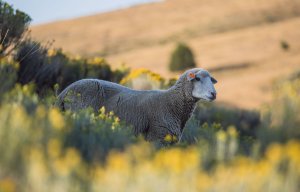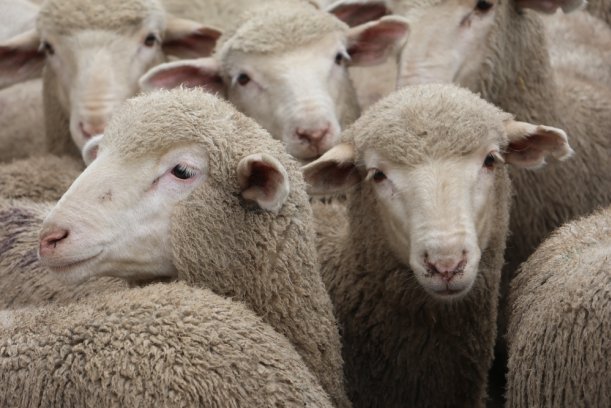
Nativa Regen launches in USA
ba&sh’s aim to become a major player in transforming the knitted garment sector and join a global movement and reduce its carbon footprint.

30th November 2023
Knitting Industry
|
Paris
ba&sh has committed to developing and financing regenerative agriculture projects. The brand has entered into a partnership with the NATIVA Regenerative Agriculture Program to provide funding to farms in Uruguay that are transitioning to this approach, and to introduce regenerative wool into its collections.
This is part of ba&sh’s aim to become a major player in transforming the knitted garment sector and join a global movement demanding increased efforts to protect biodiversity and reduce their carbon footprint.
” By partnering with the NATIVA Regenerative Agriculture Program, we hope to foster a more demanding and innovative relationship between the fashion industry and its agricultural partners. We are aware of the need to make further progress in certain areas to make fashion more environmentally friendly and respectful of life on our planet. Our approach to today’s burning issues involves taking a holistic view, and regenerative agriculture meets all these criteria,” said Pierre-Arnaud Grenade, CEO of ba&sh.
Six out of nine planetary limits have been breached, particularly relating to the change of use of soil, ba&sh says. One of the principal contributors is agriculture and ba&sh is only too aware of these issues. During the summer of 2023, ba&sh entered into a partnership with NATIVA to provide a number of farms in Uruguay with funding for their transition to regenerative agriculture.
ba&sh’s requirements in this area are based on the following pillars: soil regeneration (soil health & carbon sequestration), protection of biodiversity, elimination of synthetic inputs, guaranteeing social equity and improving the economic situation of farmers as well as animal welfare. It has the power to profoundly transform agriculture by regenerating soils and improving the resilience of farming systems. The benefits are manifold, the brand says.
The NATIVA Regenerative Agriculture Program requirements are built on a triple-impact system, based on scientific research that demands a higher level of rigour than we see in existing practices. The following methodology has been adopted:
- Introduce perennial grasses into natural pastureland to produce higher quality food for sheep and provide the local ecosystem with living roots
- Reintroduce native tree species to provide shade for sheep and shelter for other wildlife, and to promote biodiversity
- Restore the local ecosystem and biodiversity using streams, natural riverbanks and drinking troughs
The ba&sh-funded programme has helped three farms to transition to a regenerative approach, with around 8,000 hectares of land currently undergoing regeneration. The brand wants to go even further and has set a goal of 30% regenerative or transitioning wool in its collections by the end of 2025.
New creative process that starts with the yarn
Working in harmony with the sheep-shearing cycle involves a paradigm shift, explains ba&sh. The brand has had to reimagine its creative process and logistics, and rethink how it works with its partners within the supply chain to align with the farming calendar. Wool obtained at the end of summer 2023 will be used in the 2024 winter collections.
Full supply chain traceability as the cornerstone of regenerative farming
A project of this kind requires full visibility of the supply chain. ba&sh is committed to achieving a higher level of traceability and transparency in its supply chains, retracing the life cycle of its products using the Fairly Made specialist tool. As well as using this tool, ba&sh is also working on identifying, locating and pinpointing traceability in its suppliers, production sites and sub-contractors and their processes. Having full knowledge of its yarn processing partners is the key to success in this type of project.
The brand also has a strict social compliance policy:
-ba&sh suppliers must adhere to ba&sh’s code of conduct and comply with the ethical principles and requirements it contains
- All tier 1 knitting/manufacturing suppliers must possess a valid (within two years) social audit conducted by an independent third party in accordance with BSCI, SMETA, ICS or WCA.
ba&sh knits – continuous improvement and 2025 vision
In winter 2022, 32% of the wool used by ba&sh was certified. In winter 2023, this figure has increased to 98%. In addition to this, 80% of ba&sh’s standard knitted garments in winter 2023 are made from at least 70% certified fibres* (*the minimum threshold is 40% recycled fibres). ba&sh has signed the Brand Letter of Intent for animal welfare from the NGO Four Paws, which forbids animal mutilation practices such as mulesing or steining.
ba&sh aims to be using 100% certified materials by 2025. Wool information: 30% RWS wool, 30% recycled wool, 30% regenerative or transitioning wool, 10% French wool.

Business intelligence for the fibre, textiles and apparel industries: technologies, innovations, markets, investments, trade policy, sourcing, strategy...
Find out more